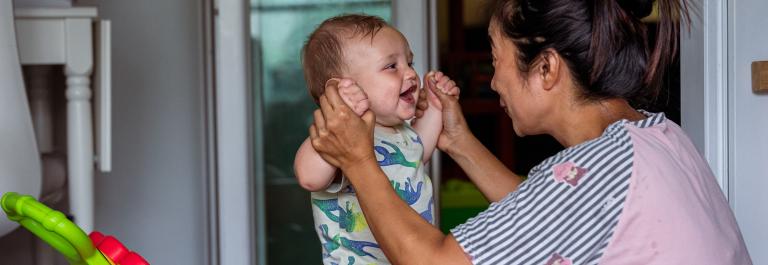The Silent Sleep Crisis in Kids and Teens

Many kids are exhausted. They’re not just a little cranky after school or just slow-moving because they stayed up late watching YouTube. This is deeper and, somehow, we’ve made peace with it. We blame school stress, sports schedules, phones, and hormones. But under all that noise is a quieter truth. Kids aren’t getting the sleep they need, and we’re barely trying to fix it.
Sleep is not a reward for finishing homework or brushing your teeth. Sleep is a biological requirement, on par with food and oxygen. Without it, kids’ bodies wear down, their brains misfire, and their emotions unravel. What appears to be laziness, defiance, or mood swings may simply be exhaustion in disguise.
More than a third of kids in America regularly fall short of recommended sleep hours (Claussen and colleagues, 2023). These numbers climb even higher for teens. Meanwhile, we ask children to wake up before sunrise for school, pile on after-school obligations, and leave their phones glowing inches from their faces. Then we wonder why they’re struggling. There is a quiet crisis hiding behind yawns, missed assignments, and subtle mental health declines.
The Biological Clock No One Respects
We love to talk about discipline when it comes to teens and sleep. “They need better habits,” or “Less phone time,” we say. But the thing is, they’re not staying up late just because they want to. Puberty shifts their internal clocks. Their bodies release melatonin later in the evening, meaning they can’t fall asleep early even if they try (Tarokh and colleagues, 2016). Then we wake them up at 6:30 a.m. and expect full performance.
Screens make it worse. The blue light delays sleep even more (Simšek and colleagues, 2019). But the problem isn’t just devices. It’s everything. Homework that runs late. Practice that ends at 9. The expectation to be available to friends 24/7. Teens don’t just struggle to sleep; they live in a world that won’t let them.
Brains That Can’t Afford to Miss Sleep
Sleep is construction time for children. Their brains are still building: wiring connections, storing memories, and regulating emotions. When that process is cut short, the effects appear quickly and persist.
Lack of sleep in children has been linked to slower brain development and even structural differences in the brain itself (Yang and colleagues, 2022). For teens, it manifests as trouble concentrating, emotional reactivity, and declining grades (Dutil and colleagues, 2022). These are the neurological costs of too little sleep.
Then there’s the mental health loop. Less sleep increases the risk of depression. Depression disrupts sleep. And around and around they go (Roberts and Duong, 2014; Marino and colleagues, 2020). We need to stop treating sleep as an afterthought. Sometimes, it’s the root cause.
Sleep Is Not Shared Equally
Sleep, like so many other things, also follows the patterns of inequality. Kids in low-income households are more likely to sleep in noisy, crowded, or chaotic environments. Some don’t have their own beds, let alone quiet, dark rooms with predictable routines (Claussen and colleagues, 2023). Sleep becomes another space where disadvantage shows up.
Even among peers, the signals differ. In younger kids, sleep deprivation can look like hyperactivity or outbursts, often mistaken for ADHD (Matricciani and colleagues, 2019). In teens, it can be mistaken for apathy or rebellion. We misread their symptoms and miss the cause entirely.
Sleep Struggles by Age
Ages 5–10: At these ages, imposing sleep routines still has a fighting chance. Parents can set bedtimes, limit screen use, and create wind-down rituals. These changes make a real difference, especially with support like light control, reduced noise, and consistency (Magee and colleagues, 2022).
Ages 11–13: Things shift fast. Kids stay up later, school gets harder, and sleep slips. Social lives and screen use pick up. Yet school still starts early. This is often the tipping point, when sleep habits either hold or collapse (Simšek and colleagues, 2019).
Ages 14–18: Now we’re in the danger zone. Many teens sleep six hours or less. They’re overworked, overstimulated, and underslept, by design. The consequences? Academic decline, mental health deterioration, weight gain, and even changes in metabolism (Grimaldi and colleagues, 2023; Tarokh and colleagues, 2016). And they keep going, because no one tells them to stop.
What Now? Seven Things We Can Actually Do
1. Delay school start times.
This is backed by science, not idealism. Let teens sleep in. It works.
2. Treat sleep like health.
Doctors should ask about sleep like they ask about diet or mood—and know how to help.
3. Teach kids (and parents) what sleep actually does.
Start young. Make it practical, not preachy.
4. Get screens out of bedrooms.
No devices in bed. No excuses. Schools and tech companies need to help, too.
5. Build sleep into mental health care.
If a kid is in therapy, sleep should be on the checklist. Always.
6. Address sleep inequality.
Support families who lack the resources for restful nights. Quiet and routine shouldn’t be luxuries.
7. Change the culture.
Stop celebrating exhaustion. The need for sleep isn’t a weakness.
The Bottom Line
Sleep isn’t optional for a 6-year-old or a 16-year-old. In fact, children and teens need more sleep than adults. We’ve created a culture that views rest as optional and overwork as admirable. This belief is hurting our kids. We must not allow sleep to take a back seat to busy schedules and glowing screens. Sleep is the foundation for brain development, emotional regulation, learning, and even basic joy. We’re failing our children if we don’t protect it. Let’s stop running them on empty.
link






